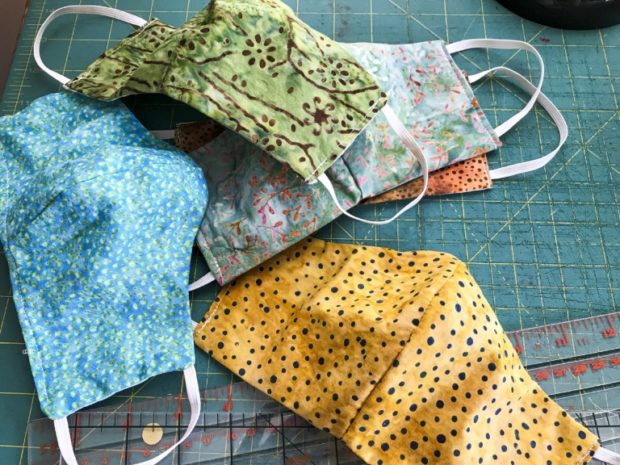Non-medical cloth masks can limit transmission of virus, researchers say

Researchers at McMaster University and St. Joseph’s Hospital (Canada) found that current knowledge is sufficient to justify a recommendation to wear cloth masks. Image: adamkaz/IStock.com via AFP Relaxnews
All over the world, governmental authorities and institutions are increasingly recommending the use of “non-medical” cloth masks to limit the risk of spreading COVID-19. In a recent publication, researchers from McMaster University and St. Joseph’s Hospital in Ontario explain that there is currently sufficient knowledge to justify this policy.
“Cloth does not stop isolated virions. However, most virus transmission occurs via larger particles in secretions, whether aerosol or droplets, which are generated directly by speaking, eating, coughing and sneezing,” the authors of the study said. “Every virus-laden particle retained in a mask is not available to hang in the air as an aerosol or fall to a surface to be later picked up by touch.”
Supervised by researcher Catherine M. Clase, the study was published on May 22 in the journal Annals of Internal Medicine. In support of their arguments, the authors of the publication cite several previous studies of cloth masks, notably a randomized controlled trial conducted in 2015 and published in BMJ Open, which aimed to compare cloth masks with medical masks.
According to the study, the rate of infections with influenza-like illnesses among health professionals wearing cloth masks was 2.3%, compared to 0.7% for medical masks. However, the results of this study were the subject of a second publication in the light of recent events linked to the COVID-19 pandemic.
“This trial has been misinterpreted as showing that cloth masks increase risk for influenza-like illness, but it actually provides no evidence on the effectiveness or harms of wearing cloth masks compared with not wearing cloth masks because it had no comparator group without masks. Furthermore, filtration efficiency for the cloth masks used in this study was 3%,” notes Catherine M. Clase’s team.
The Canadian researchers therefore draw attention to the effectiveness of cloth masks, not with regard to surgical or FFP masks, but rather in comparison to no masks at all.
“No direct evidence indicates that public mask wearing protects either the wearer or others,” they said. “Given the severity of this pandemic and the difficulty of control, we suggest that the possible benefit of a modest reduction in transmission likely outweighs the possibility of harm.” JB
RELATED STORIES:
‘We can get it done here’: Africa’s tech scene tackles virus
Buzz off: Italian startup offers social distancing bracelets
For more news about the novel coronavirus click here.
What you need to know about Coronavirus.
For more information on COVID-19, call the DOH Hotline: (02) 86517800 local 1149/1150.
The Inquirer Foundation supports our healthcare frontliners and is still accepting cash donations to be deposited at Banco de Oro (BDO) current account #007960018860 or donate through PayMaya using this link.